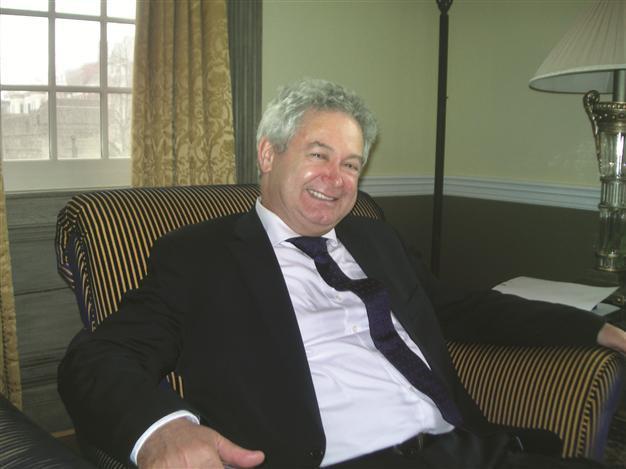Greek Cypriot negotiator hails Turkey’s stance in Cyprus
Tolga Tanış WASHINGTON / Hürriyet

‘Today the [Turkish] military does not play the same role. This has partially helped the evolution of Turkey’s stance,’ Greek Cypriot negotiator Mavroyiannis says.
Greek Cypriot negotiator Andreas Mavroyiannis has praised Turkey’s “evolving” stance on the Cyprus issue, saying the decrease of the importance of the military’s role makes positive contributions to the process.“The referendum in 2004 was not a missing of the opportunity for consensus. It was not meeting the fundamental requirements of the Greek side in terms of security, equality, and implementation. Because Turkish Prime Minister [Recep Tayyip] Erdoğan had said he needed many things and failed to convince the military [for a plan], the United States and United Nations gave Turkey too many advantages, not to Turkish Cypriots, but to Turkey. This is why the consensus failed to realize in 2004,” Mavroyiannis told Turkish daily Hürriyet in Washington.
However, the situation is not the same with the change of the military’s role, he said. “Today the [Turkish] military does not play the same role. This has partially helped the evolution of Turkey’s stance. And we believe Turkey is more constructive today compared to its stance in the past. Turkey today sees itself as a powerful economic power, rather than a military power. This is an important change,” Mavroyiannis added.
“Cyprus was a symbol of nationalistic propaganda in Turkey until the recent years. This has started to change and be replaced with a more rational stance,” he added. He also said it would be better for the sake of a solution on the island if the current president of Turkish Cyprus, Derviş Eroğlu, is not reelected as president in next year’s presidential elections.
“If President Derviş Eroğlu is reelected, then the situation will remain the same. But if someone from the opposition replaces him, that would be better, as he could be a more constructive,” he added.
‘Turkish Cypriots have changed, too’
When asked about the possible influence of the upcoming elections in both Turkey and northern Cyprus, Mavroyiannis said: “In Turkey, I don’t expect this political development to have a real barrier to what we do in Cyprus. I think they will continue. They are tied to push forward. We don’t know how far they are willing to go. But at least they showed that they are determined to move forward.”
The Turkish Cypriot community has also changed since the 2004 referendum, the Greek Cypriot negotiator believes. “Today the Turkish Cypriot community -this is very interesting- is more attached to the EU than the Greek Cypriot community, because they see where their future life is. Almost everyone on the Turkish Cypriot side who has a Cyprus passport goes around Europe. They can send their kids to study in England. This is a very attractive thing for the Turkish Cypriot community. Greek Cypriots have been doing this for the past decade, but didn’t appreciate it enough,” he added.
















